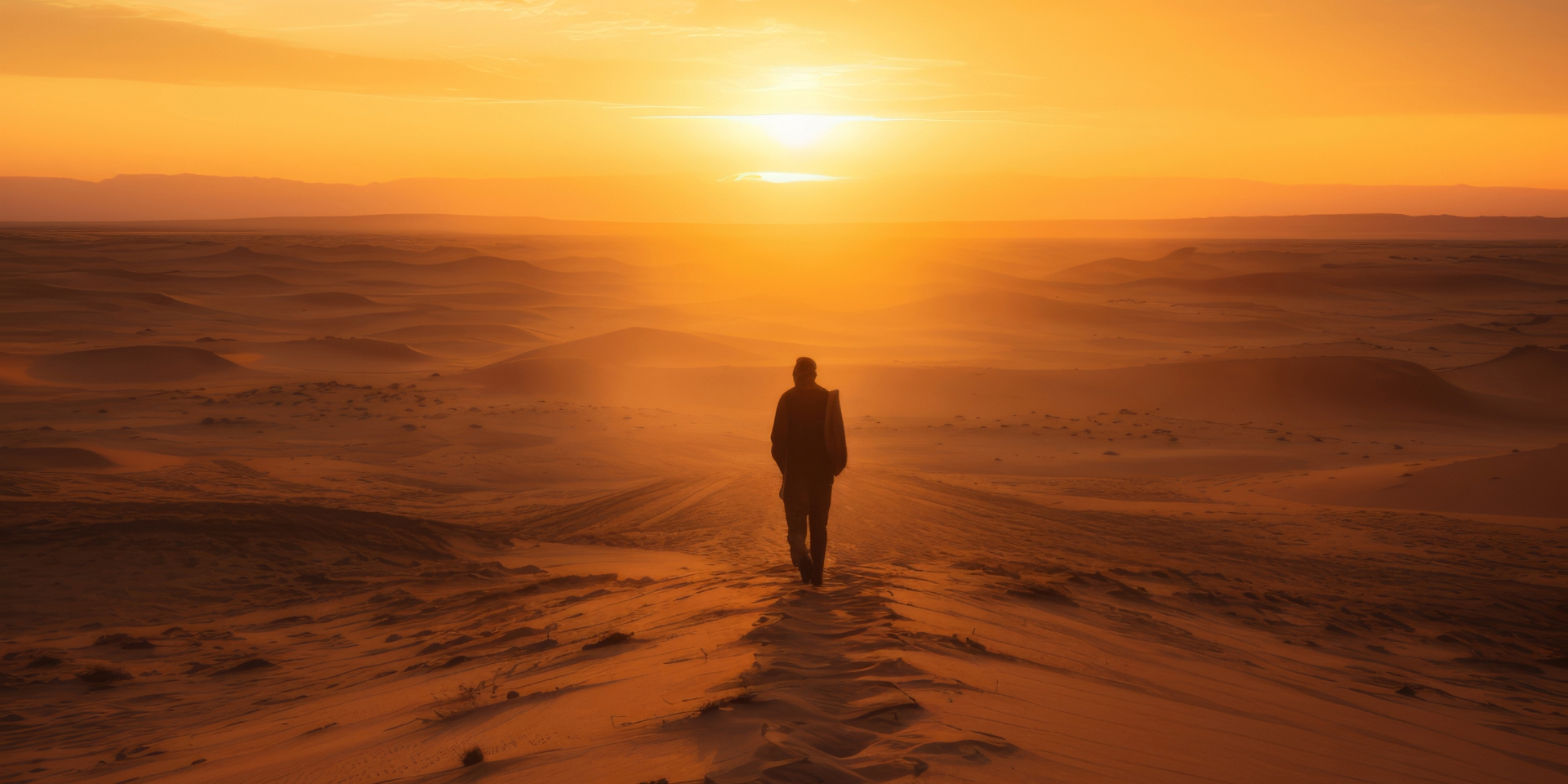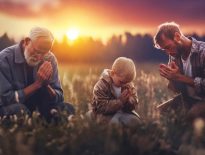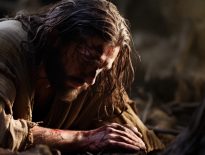Life is a stage that we enter without a script, although we are constantly influenced by forces of varying visibility: social, educational, religious, economic, and political.
In the act of childhood, the horizon of knowledge or our scenography is often reduced to a simple sandbox or a playground in front of the house. But when the curtain rises on adolescence, the décor changes. The sandbox becomes uninteresting. Toys are abandoned and the grains of sand become glowing constellations that guide our dreams. As the act of youth begins, in our twenties, we search for our meaning and our role in this grand spectacle, navigating the complexities of a colourful world whose mystery “eludes us for the most part“.
I wish I had known more at that age—about people, civilisations, cultures, scientific mysteries, philosophy or religion. Looking back on the situations and events of that period of my life, I find myself in the midst of my memories, venturing into Shakespearean or Dostoevskian questions: Does life have meaning? Does being human have any value? They were profound, almost overwhelming questions, even for people endowed with a glimmer of genius. The answers, when they came, unravelled slowly and partially in my mind at the time.
The lenses of distortion and the pressure to conform
In my formative years, I, along with others of my generation, were given glasses whose blurred lenses gave us a distorted view of reality. These lenses altered our ability to understand and appreciate our own existence, our intrinsic value and the deeper meaning of life. Looking back, I realise that this distortion, this fog of perception, influenced every level and every decision of my life.
It was a time when life and its meaning seemed to be drawn according to a predetermined pattern, a well-defined formula in which every detail was in its place. In order to be considered “adequate” or “normal”, or to belong, I learned to suppress my inner aspirations and ideals, often vehemently. I had to sacrifice inner resources and vital energy to become acceptable, to fit into a society that valued conformity over authenticity.
Resistance
At that time, conformity was more than a concept: it was a way of life. The patterns, mores and “normality” of society were more powerful than any message coming from my inner self. The existing hierarchies, institutions, and entities authoritatively established meaning and direction. I had to be successfully regimented to protect the non-negotiable social order. It was like a predestination that could not be compromised by any individual inner impulse. There was no room for authenticity because so much was done under the seal of conformity. As for human worth, it was often only validated to the extent to which I regularly achieved noteworthy performances: the best at university, the best at sports, the hardest worker in the family, the best specialist, and so on. If I failed to perform any of these acrobatics, I was immediately demoted.
When you’re 20, many of the structures and patterns of society seem to make no sense; breaking patterns is much more feasible, chaos becomes much more attractive.
The prospect of independence and freedom in the form of anarchy becomes seductive. But the fervour of the emotions and experiences of the young crashes violently against the thick wall of the system that has been constructed over so many generations. Such confrontations are not without consequences. One is almost inevitably tempted towards the conclusion of Ecclesiastes: all is vanity and chasing after the wind—a pessimistic, discouraging scenario reminiscent of Emil Cioran.
At a certain point, it seems that nothing in this construct called life makes sense, and that all effort is worthless—”What do people get for all the toil and anxious striving with which they labour under the sun?” (Ecclesiastes 2:22) It seems that life is flawed and circular: “What has been will be again, what has been done will be done again; there is nothing new under the sun” (Ecclesiastes 1:9). You can’t repair it: “What is crooked cannot be straightened; what is lacking cannot be counted” (Ecclesiastes 1:15). It is fair to ask whether humanity is condemned to despair, and whether we are clumsy actors playing our parts in a play that was written before we were born.
Although I sometimes felt that I was surrounded by the walls of a prison called “the world”, deep down I resisted this idea. I refused to see myself as a mere “decent prisoner”, an educated man trapped in a suit and bound by convention. Instead of accepting this idea, I felt more like an explorer in a labyrinth, always looking for a way out. And when I couldn’t find that exit door, I wondered how, even in this seemingly closed world, I could discover a profound meaning and infinite value to my existence limited by finite space and time. The starting point is this curiosity and the moment of wondering, of asking questions. As Andrei Pleșu said, life begins to make sense the moment you question its meaning.
The quest that brought me clarity
I was in a sea of subjective opinions and interpretations about the meaning of life and the value of humanity. And in my search for higher clarity, I made a gesture that was unnatural in the context in which I found myself. I turned to an entity that I believe transcends time and space and to which we cannot ascribe subjectivity: God. Realising that I could not have a one-on-one conversation with Him, I turned to His instrument of communication, the Bible. In fact, I cannot say that I found the Bible; rather, the Bible found me. As I leafed through its pages, I saw that the Bible doesn’t even discuss explicitly or systematically the meaning of life or the value of human beings. But what struck me was that in the pages of the Bible, God’s existence and character are portrayed by one unconditional characteristic: His nature is equal to love and vice versa.
This discovery filled me with hope. I also understood that the divine act of creation had a clear and profound intention.
Humans were created in the image and likeness of God, a sign of the value and dignity that the Creator sees in each of us.
As such, God not only created life, but also gave it meaning, and was not content with merely creating humankind, but endowed it with undeniable value. And man, having lost his original dignity as God’s child, was restored to that dignity by God’s supreme sacrifice—the historical event of the Cross. So the two dilemmas in my life had a real chance of being resolved. All that remained was to wait patiently and see how these profound truths would become tangible certainties in my life. It didn’t take long and a series of events that we usually think of as “coincidences” began to occur. I remembered a popular quote on social media today: “Coincidence is God’s way of remaining anonymous”. As these coincidences piled up, I felt I was being led to a deeper understanding of the mysteries of life.
What I wish I had known in my 20s:
|
My one regret
My only regret is that I did not explore this truth further, that I did not cling even more to this perspective, which would have opened up a vast palette of possibilities not only for my own growth, but also for my ability to positively influence those around me. I wish I had realised that God gives meaning and value to human life in a more practical, vivid, clear and concrete sense—that this statement, which has truth value, is not just an abstract concept or a simple philosophical or religious construct. Looking back, I see that this aspiration was an ideal to which I aimed, but with an undertone of unfulfillment. What if I had been more convinced that my existence was full of deep meaning and that I had an inalienable, constant, and eternal value?
Had I understood this more deeply, I would have been more aware of my own thoughts, feelings, and needs. That doesn’t mean that I would have focused exclusively on myself and ignored others; on the contrary, this awareness would have better equipped me to help and support others, feeding me from that inexhaustible source of hope and confidence. But the time is not yet over, neither for me nor for you.
Does our existence have intrinsic value and deep meaning? My answer is an unequivocal yes. Human beings have infinite value and a meaning that transcends circumstances. This is my firm and unshakable belief.
Mihai Miron, 42, is a pastor and regional director of the Religious Liberty Department of the Seventh-day Adventist Church. In his 20s, he was a law student trying to define his spiritual identity, searching for the truth about the world and striving to discover the meaning of life.



















